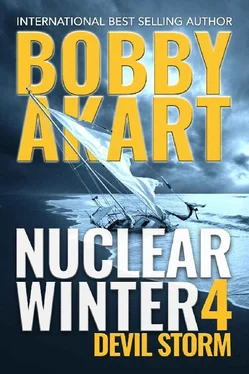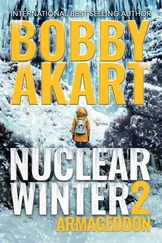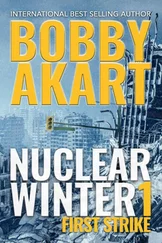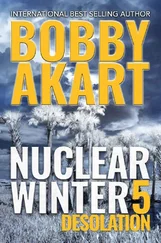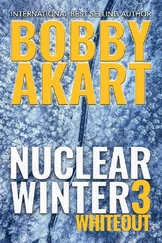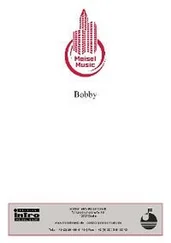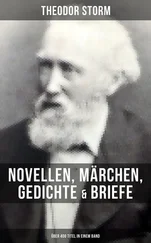Truthfully, Mike was feeling much better although it still hurt to take a deep breath. He imagined he could make his way to the sofa in their room at the inn or even wander around the main house to get a little exercise. Cocktails were a possibility, but his beloved cigars would have to wait a while. He’d never forget the disapproving look he had been given after he regained consciousness and the doctor had asked him if he was a smoker.
Only cigars .
He was read the riot act about how cigars caused cancer of the mouth and throat even if he didn’t inhale. The doc droned on and on about how cigars were not a safe alternative to cigarettes. Cigars have twenty times the amount of nicotine as a cigarette.
Blah-blah-blah.
If Mike didn’t need the medical team to keep him alive, he would’ve correctly pointed out that it was a homicidal maniac with a knife who had landed him in the hospital with a hole in his chest. Not his occasional Macanudo.
Mike was no longer hooked up to the monitors. His blood pressure was checked periodically, and he was required to show the nurses that he’d been staying hydrated. He was always thirsty, so that wasn’t a problem.
He was also told to use a volumetric exerciser on a regular basis. The handheld device was frequently required for patients who were recovering from surgery or lung illnesses. The spirometer device helped keep the lungs free of fluid. Mike did it because he was incredibly bored, and the process became like a game to him. It also enabled him to perform a self-assessment as to his eligibility to be discharged.
He’d been given a pen and notepad. Using the battery-operated clock on the wall, he recorded the time and the volume of air, and using a few dots that wouldn’t make any sense to the medical staff, he recorded his pain level. As his stay in the hospital wore on, Mike found his ability to take deep breaths increased, and the pain associated with the ordinarily simple bodily function decreased.
As far as he was concerned, he was ready to be released despite the hospital’s anticipated refusal to sign off. It would be the sound of gunshots that hastened his exit.
Friday, November 8
Lower Keys Medical Center
Key West
The report of a large-caliber handgun was unmistakable. Mike’s trained ear could make out the sound of a .45-caliber bullet being discharged from its weapon despite the echoing effect of the hospital corridor.
Just moments ago, the halls had been filled with hospital personnel trying to take care of people suffering from out-of-the-ordinary illnesses like dysentery and complications resulting from malnutrition. It had been over three weeks since the nuclear attacks and about that same length of time since nuclear winter with its sooty fallout had overtaken the keys. Residents were not faring well due to the lack of water, food, and clean air.
Now they faced a threat that could end their misery unexpectedly—a gunman. Mike jumped out of bed and rushed to the door. He knelt down to keep his body low and poked his head into the corridor to get a look toward the nurses’ station.
Several hospital personnel had crowded behind the counter and workspaces. Another was crouched behind a rolling cart full of medications due to be delivered to patients. Half a dozen or more raced past his room to the far end of the hallway in an effort to get farther away from the ER entrance.
Mike pulled back into the room and considered his attire. It was purely speculation as to what the gunman’s motives might be. He could be looking for a particular target, or perhaps he was frustrated that a loved one had died while in the care of the medical center. He felt he’d have a better chance of survival should he come in contact with the shooter if he was dressed in his own clothing.
Without regard to the pain that seemed to worsen as his adrenaline kicked in, Mike quickly changed into blue jeans, sneakers and a turquoise blue sweatshirt with the words I heart Key West emblazoned across the front. The word heart was actually the symbol, not that it mattered. He didn’t particularly heart Key West, anyway.
Satisfied he didn’t look like any of his presumed targets, Mike Albright did what every dedicated first responder did in the face of danger. He ran toward it rather than away from it.
At first, he raced thirty or forty feet until he reached the nurses’ station, where he crouched behind the counter alongside a large contingent of staff members. Several of them shot him a puzzled look of recognition. They’d attended to Mike on and off throughout the day, but with him dressed in street clothes instead of a drafty gown, they couldn’t quite place him. Mike managed a smile as he wondered if he should pull down the backside of his jeans and shoot them a moon. Perhaps they’d recognize him then.
More gunshots rang out, but this time, deep concern entered Mike’s mind. They had been fired in rapid succession and appeared to come from two different weapons. Multiple shooters.
He sighed and closed his eyes as he grimaced. He turned to the frightened nurses and doctors. “Do you have armed security on this floor?”
Nobody answered at first, and then the charge nurse rose from her crouch to join Mike’s side. “One per floor but they’re unarmed. The hospital never thought guns were necessary since the sheriff’s office is down the street.”
Mike shook his head in disbelief. “How does that help you now?” he asked, immediately feeling guilty for berating the RN in the midst of a crisis. It wasn’t necessarily her decision to avoid arming their security personnel.
He leaned out into the corridor again and decided to move closer. Thus far, the gunshots seemed to emanate from the large, open entry corridor near the emergency room portico. A set of double sliding doors separated the outside from the intake center of the ER. With the levels of soot in the air and the hurricane barreling down upon them, Mike would’ve expected them to remain closed in favor of the normal swinging doors flanking both sides.
Without communications lines, he questioned whether anyone had the presence of mind to run to the sheriff’s office. He considered doing it himself if his lungs would allow it, but first he had to get out of the building. Like most hospitals, manners of ingress and egress were limited to two or three locations at most.
He couldn’t count how many times he unconsciously reached for his service weapon. Instincts had taken over, and he knew exactly what needed to be done. He simply didn’t have the tools to do it.
Hank broke cover and quickly moved forward until he could slip inside the open door of a patient’s room. Inside, an elderly woman lay perfectly still with the covers pulled up to her chin. Her eyes were wide with fear, and Mike had learned enough about heart rate monitors from staring at his own to know she was on the verge of cardiac arrest.
He was closer to the ER’s reception area, and he was clearly able to make out two men shouting. Screams filled the corridors of the hospital. Mike needed to get closer to get a handle on what he was dealing with. Before he left the woman’s room, he tried to reassure her, speaking softly so as not to be heard. Then he exited her room and pulled the door closed behind him.
That was when the lights went out.
Mike would never learn what had caused the sudden power outage at the Lower Keys Medical Center. The storm could’ve been identified as the culprit, but the facility had been drawing upon its generators for power already. Perhaps it was the hospital’s security team’s only plan to thwart the gunmen.
It might have been a tactic employed by the MCSO’s SWAT team to gain an advantage over the gunmen. He hadn’t been directly involved in their training, and frankly, they’d rarely been used in the last several years. It didn’t take a SWAT team to clear a bunch of drunks off Duval Street during Fantasy Fest. Regardless, it gave him an opening, and he took it.
Читать дальше
